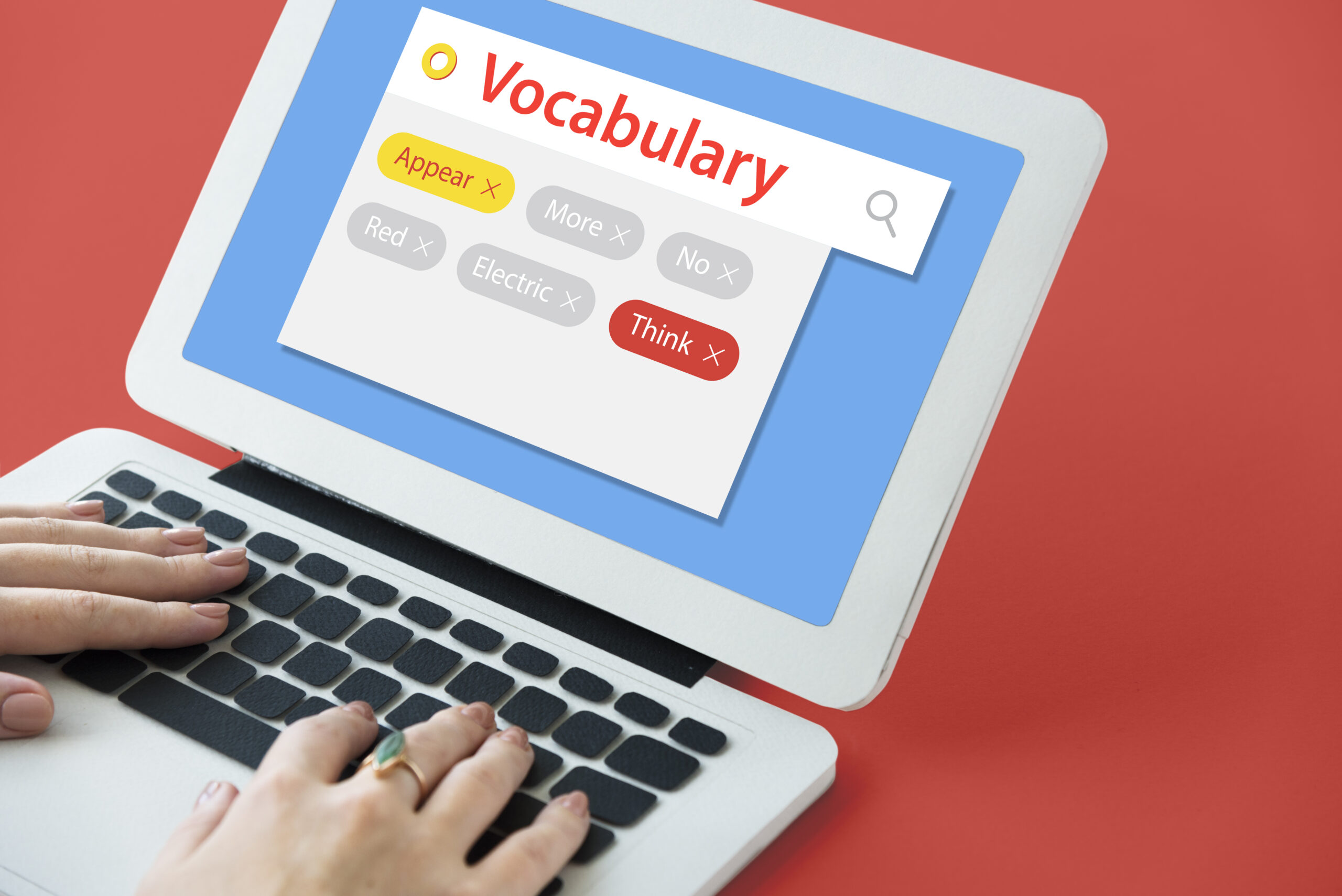
- Home
- Vocabulary for IELTS Listening Success
- Priya
- 0 Comments
- February 13, 2025

Vocabulary for IELTS Listening Success
The IELTS Listening test assesses your ability to understand spoken English in different contexts, including conversations, lectures, and discussions. A strong vocabulary is essential for achieving a high score, as IELTS often uses synonyms, paraphrasing, and topic-specific words to test comprehension. Many test-takers struggle with unfamiliar words, misinterpretations, and missing key information due to limited vocabulary. However, expanding your word bank and recognizing paraphrased expressions can significantly improve your performance. In this blog, we will explore essential vocabulary for IELTS Listening, strategies to learn new words effectively, and practical tips to boost your listening skills.
Common Vocabulary Topics in IELTS Listening
Daily Life and Everyday Conversations
IELTS Listening often includes conversations related to daily activities, such as booking appointments, asking for directions, or making reservations. You should be familiar with words related to transportation (e.g., “commute,” “fare,” “platform”), shopping (e.g., “discount,” “refund,” “receipt”), and leisure activities (e.g., “cinema,” “exhibition,” “membership”). These words help you understand common discussions in Sections 1 and 2 of the test.
Education and Academic Vocabulary
Since IELTS Listening includes discussions between students and professors, learning academic vocabulary is crucial. Important words include “lecture,” “assignment,” “deadline,” “curriculum,” and “scholarship.” Recognizing synonyms is also vital—for example, “research” may be referred to as “study,” and “professor” as “lecturer.” Expanding your academic vocabulary will help you grasp information quickly in Sections 3 and 4.
Workplace and Business Terminology
Some IELTS Listening recordings involve workplace conversations, business meetings, or job-related discussions. Common terms include “salary,” “promotion,” “internship,” “deadline,” and “negotiation.” Additionally, understanding business-related phrases like “job satisfaction” or “career growth” will prepare you for workplace-related questions.
Recognizing Synonyms and Paraphrasing in IELTS Listening
Why IELTS Uses Synonyms and Paraphrasing
IELTS Listening rarely uses the exact words from the questions. Instead, it rephrases information to test your ability to recognize meaning. For example, a question may ask, “What is the professor’s opinion on the new policy?” but the speaker might say, “The professor thinks the policy is ineffective.” Understanding synonyms helps you identify the correct answer without getting confused by different wording.
Examples of Commonly Used Synonyms in IELTS Listening
- Cheap → “inexpensive,” “affordable”
- Difficult → “challenging,” “tough”
- Important → “essential,” “crucial”
- Fast → “quick,” “rapid”
- Job → “occupation,” “profession”
Practicing Paraphrased Expressions
A speaker might say, “The museum closes at 6 PM,” but the question may ask, “What time does the museum shut?” Since “close” and “shut” are synonyms, recognizing this will help you locate the correct answer. To improve, practice matching words and phrases with their synonyms while listening to IELTS practice recordings.
Expanding Your Vocabulary for IELTS Listening
Using Context to Guess Meanings of Words
Even if you don’t know a word’s exact meaning, you can often guess it based on context. For example, if the speaker says, “The weather is unpredictable; it changes suddenly,” you can infer that “unpredictable” means something uncertain or unexpected. Training yourself to understand words based on surrounding information will improve comprehension.
Learning New Words with Flashcards and Lists
Using flashcards is an effective way to memorize new words. Apps like Anki and Quizlet allow you to create digital flashcards and test yourself regularly. Additionally, maintaining a vocabulary notebook where you write down new words, their meanings, and example sentences will reinforce learning.
Practicing with Real-Life Listening Materials
Exposure to real-world English is crucial for vocabulary development. Listening to podcasts, TED Talks, news reports, and audiobooks helps you learn words in context. Choose materials that match IELTS topics, such as education, environment, and health, to familiarize yourself with relevant vocabulary.
Overcoming Common Vocabulary Challenges in IELTS Listening
Dealing with Words That Sound Similar
Some English words sound alike but have different meanings, leading to confusion in IELTS Listening. For example:
- “Accept” vs. “Except”
- “Advice” vs. “Advise”
- “Principal” vs. “Principle”
Practicing minimal pairs and listening to word differences will help you distinguish similar-sounding words more accurately.
Recognizing Collocations and Common Phrases
IELTS Listening often includes word combinations, such as “make a decision,” “take a risk,” or “give a presentation.” These are called collocations—words that naturally go together. Learning collocations helps you understand spoken English more naturally and recognize expected word pairings.
Understanding Numbers and Dates in Listening Tests
Numbers, dates, and times are often tested in IELTS Listening, but they can be tricky. A speaker might say, “The meeting is scheduled for the 15th,” but then correct themselves by saying, “Actually, it’s been moved to the 17th.” Being aware of such changes and noting down numbers carefully can prevent mistakes.
Applying Vocabulary Skills to IELTS Listening Questions
Practicing Multiple-Choice Questions
Multiple-choice questions in IELTS Listening often use synonyms or rephrased answers. For example, if the recording states, “The company is expanding due to increased sales,” the answer option might say, “The business is growing because of higher revenue.” Recognizing paraphrasing helps you select the right answer confidently.
Improving Gap-Fill and Sentence Completion Skills
In completion tasks, missing words must be filled in based on the recording. For example, a sentence might say:
- “The train will arrive at ______.”
If the recording states, “The train is expected at 10:45 AM,” the correct answer is “10:45 AM.”
Practicing common IELTS Listening vocabulary will help you recognize the correct words faster.
Conclusion
A rich vocabulary is the key to excelling in IELTS Listening. By learning topic-specific words, recognizing synonyms and paraphrasing, expanding your word bank through real-life listening, and practicing IELTS-style questions, you can overcome challenges and achieve a high score. The more you expose yourself to English conversations, the more naturally you will understand different words and phrases. With dedication and the right strategies, mastering IELTS Listening vocabulary is within your reach.
Section Title
Confidence Exercises for English Speaking Speaking English confidently can be a challenge for many...
Tips for Confident English Conversations Speaking English with confidence is essential for effective...
Overcome Fear of Speaking English Enhance your English communication skills to impress clients and...
Impress Clients with English Communication Enhance your English communication skills to impress...
Ace Job Interviews with Business English Boost your confidence and excel in job interviews with...
Negotiate Successfully in Business English Master the art of negotiation in Business English! Learn...
Network Effectively with Business English Learn to network effectively using Business English!...
Polish English for Presentations Delivering a presentation in English requires clarity, confidence...
Key Business English Phrases for Professionals Effective communication in the business world...










Leave a Comment